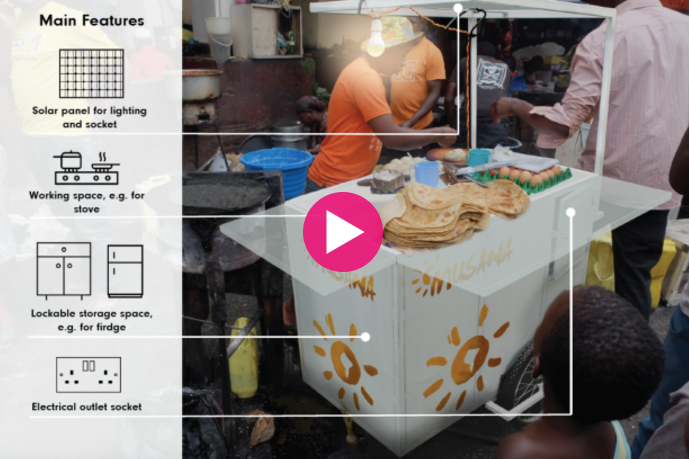
As a social entrepreneur, you are the one out there tackling social issues with your sustainable business. But, you know what? You are not a superhero. If you want to increase your impact, there are some basic things that you need to do. Here are five ways to improve your impact as a social entrepreneur:
1. Don’t try to do everything yourself.
There are so many social issues to be covered around the world; Poverty, Global Warming, Energy consumption, the environmental conservation, refugee crisis, population growth, Economic Development, Health, etc. What you can do is limited, and you can’t solve every single issue alone. That’s the dilemma. But don’t worry. It’s ok.
Collaboration is an essential key to be a successful social entrepreneur. You know why? Because what you want to achieve is to solve problems that you found one by one, not to show off who you are. It is always a good idea to partner with those who are already doing the work in the field because they must have more experience and knowledge about the affairs. It doesn’t mean they have everything they need. You might be able to fill in the gaps or pieces that are missing.
When collaboration brings energy to millions.
d.light is a global solar energy company that delivers affordable solar-powered solutions designed for the 2 billion people living without access to reliable energy in Africa, China, South Asia and the United States.
d.light started a channel partnership with Unilever. How it worked was that d.light sells solar home systems to Unilever, which places them in the small-scale retail shops that stock its products, so all parties: Unilever, d.light, and the retailers financially benefit, which all profit from increased sales.
While having access to solar lighting led to significant increases in store revenue, d.light also benefits from increased awareness of its products among consumers who shop at retailers’ stores because of the way that the light impacts the aesthetic of the shops.
Remember, “why” you do your business is more important than “how” you do it. You’d better ask yourself the purpose of the path.
2. Don’t try to be a hero in one night.
Social entrepreneurs are not superheroes (But they are force to be reckon with). You should keep it in your mind that you cannot be a hero in one night as Rome wasn’t built in a day.
Let’s focus on one small issue that you can solve as a start, then gradually pace up. Simplicity is a key to unwind complexity in the end. Microfinance is a well-known concept today, but did Muhammad Yunus see he could change the world in a blink? No.
He wanted to save a poor person right in front of him on the street one day, started a new way of lending money to the poor in a city where he lived, opened Grameen Bank there, the system expanded in Bangladesh and now around the world. One by one from a small but impactful thing.
3. Never stop listening.
Listening is so important as a social entrepreneur.
Some people think that they already have a solution to an issue, without really listening to the people they are serving. For example, when Gavin Armstrong — featured in our special Top 10 Edition — founded the company Lucky Iron Fish, a company that created an iron fish to help people around the world deal with anemia and iron deficiencies. When he began to launch his product, an iron fish, he talked to the women in Cambodia who would be using this product, cooking for their families. He listened to the local Cambodians on how he should brand and name his company. He didn’t do it alone or think he had all the answers.
Listen to your customers. This is the only way to find out what they want.
I’ll give you an example through my experience with a crowdfunding campaign called Musana Carts: The Solar Street Vending Revolution. My friends and I came up with an idea to provide food carts with market vendors in Uganda 2 years ago. We thought the carts would make it easier for vendors to move around with wheels of the carts.
However, the reality was that it wasn’t useful because vendors needed to stay in their spot that the government authorized for well management reason. So we suggested pushing carts between their houses and the market. It didn’t work either because it might create traffic accident such as vendors hit by a car. Every single idea is worth coming up with, but you should never skip the phrase “listen to your (potential) customers,” so you can sell them what they want and give them what they need.

4. Break free from the norm.
Listening to your customers is necessary, but as Henry Ford, the founder of Ford, said, “If I had asked people what they wanted, they would have said faster horses,” following their requests and doing what they ask you to do are a different story.
It is your customers’ “potential” need that you need to figure out when you listen to them. Henry Ford was smart enough to know that, and that’s why he invented Ford cars, not giving faster horses to people. But here is another question; then what?
You should know that a few ideas that you’d come up with when you start thinking of the best ways to tackle social issues are ones that tens of thousands of people even have already tried.
For example, poverty is not an issue that recently rises, but it exists for a long time. Everyone knows that poverty still exists on the earth and still needs to be addressed. You need to come up with an innovative solution to address social issues that nobody could have ever solved. Our Change Creator magazine can show you so many innovative and creative ideas with great social entrepreneurs. You should check it out!
5. Don’t be overwhelmed.
You might find out that you have SO MANY things to do and might not see yourself reach the goal yet, but that’s ok. Remember the four other things I mentioned above, keep your own pace, address the issue by one step at the time and even ask other social entrepreneurs for help if needed. You are not alone, and we need you. You are one of the most amazing people on this planet, and again, we need you. Please always remember that.
As I told you at the beginning, social entrepreneurs sound very special, but they are also people.
This blog is a reminder that you can also be one of them, or you are already one of them. If you don’t do those top 5 “Don’ts,” you’ll become a great social entrepreneur who can create a positive impact on the world.







